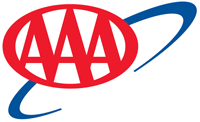Tow to Go service available November 26th – 29th
 Tampa, FL – One in five consumers (20%) said they have never used a designated driver while away from home and drinking, according to a recent AAA Consumer Pulse™ Survey.
Tampa, FL – One in five consumers (20%) said they have never used a designated driver while away from home and drinking, according to a recent AAA Consumer Pulse™ Survey.
AAA and Bud Light urge motorists to plan ahead for the holiday weekend if they will be out drinking. This means choosing a designated driver, staying where you are celebrating, using a cab or finding another form of sober transportation.
“It’s unsettling that we still have a significant number of people that have never used a designated driver when they are drinking away from home,” said Gerry Gutowski, senior vice president, Automotive Services, The Auto Club Group. “With so many travelers this holiday weekend, it’s more important than ever to plan ahead and celebrate safely.”Whether you are a AAA member or not, you can call for a Tow to Go ride anytime Wednesday through Saturday night. AAA will then safely transport you and your vehicle home or somewhere safe within 10 miles.
“The Tow to Go program is a very effective way to promote the use of designated drivers and help prevent drunk driving,” said Kathy Casso, vice president of Corporate Social Responsibility for Anheuser-Busch. “We are very thankful to partner with AAA and their roadside assistance drivers to help keep our roads safe.”
Since its inception in 1998, Tow to Go has safely removed more than 23,000 impaired drivers from the roads. The service is designed to be used as a last resort. It is offered based on availability of AAA drivers and tow trucks during times of high call volume. The Auto Club Group Traffic Safety Foundation provides the Tow to Go service because it helps keep all motorists safe from the dangers of drunk driving.
Tow to Go Services:
- Confidential local ride within a 10-mile radius to a safe location
- Service is provided in Florida, Georgia and Tennessee
- Free and available to both AAA members and non-members
- The AAA service vehicle transports the driver and their car
| Tow to Go Service Area | Phone Number |
| Florida, Georgia, and Tennessee | (855) 2-TOW-2GO or (855) 286-9246 |
Anheuser-Busch Wholesalers have been cosponsors of the program since its inception in 1998. Not only has the company provided funding for the service, it has also worked with local bars and restaurants throughout Florida, Georgia and Tennessee to help educate servers on the importance of not over-serving their customers.
For nearly three decades, Anheuser-Busch and its nationwide network of 600 wholesalers have invested more than $1 billion in national advertising campaigns and community-based programs to encourage responsible drinking and prevent underage drinking and drunk driving. For more information on these efforts and the progress being made in fighting underage drinking and drunk driving, visit www.anheuser-busch.com.
About Auto Club Group Traffic Safety Foundation
Established by AAA – The Auto Club Group in 2010, Auto Club Group Traffic Safety Foundation, Inc. (ACGTSF) is a 501(c)(3) non-profit organization and public charity dedicated to producing a significant and continuous reduction in traffic crashes, injuries and deaths in the communities targeted by its efforts.
ACGTSF provides programs, education and outreach to increase public awareness about the importance of traffic safety and improve driving behavior. ACGTSF is funded by voluntary, tax-deductible contributions from organizations and individuals who support ACGTSF’s purpose.
About The Auto Club Group
The Auto Club Group (ACG) is the second largest AAA club in North America. ACG and its affiliates provide membership, travel, insurance and financial services offerings to approximately 9 million members across 11 states and two U.S. territories including Florida, Georgia, Iowa, Michigan, Nebraska, North Dakota, Tennessee, Wisconsin, Puerto Rico and the U.S. Virgin Islands; most of Illinois and Minnesota; and a portion of Indiana.
ACG belongs to the national AAA federation with nearly 55 million members in the United States and Canada and whose mission includes protecting and advancing freedom of mobility and improving traffic safety.


